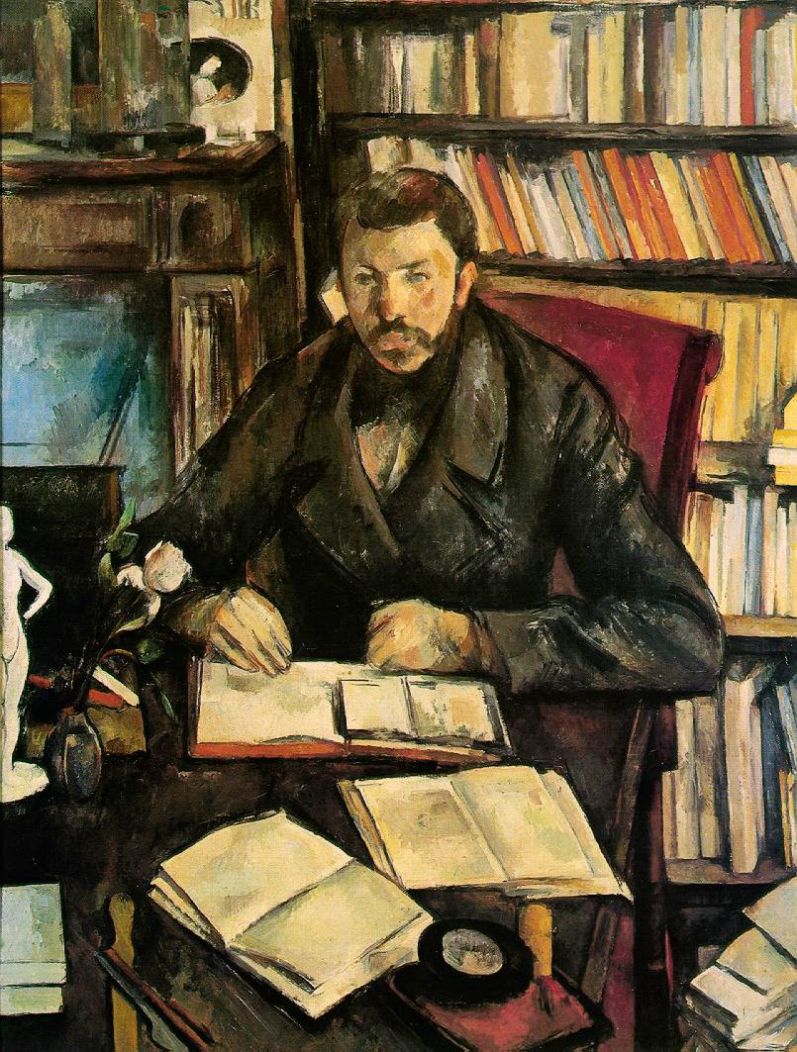
Karl Spitzweg, "The Bookworm

Cezanne, Portrait of
Gustave Geoffroy
Introduction to Sociology
Professor Larry Stern
Reading Assignments, Lecture Notes & Web Sites
Unit 2A: The Historical Development of Sociology:
The Essential Tension Between Advocacy and ObjectivityClass Lecture: What is Sociology?
Michael Burawoy, "To Advance, Sociology Must Not Retreat"
Peter Kaufman, "The Compassionate Sociologist," Everyday Sociology, June 6, 2016
Peter Kaufman, "You Can’t Be Neutral on a Moving Train," Everyday Sociology, May 15, 2017
Peter Kaufman, "Sociology for the Masses!,"Everyday Sociology, April 4, 2016
Browse through the following snap-shot biographies of:
Edith Abbott
Jane Addams
Sophonisba Preston Breckenridge
Alice Hamilton
Florence Kelley
Julia Clifford Lathrop
Jacob Riis
Vida Dutton Scudder
Ellen Gates Starr
Lillian Wald______________________________________________________________
Class Discussions
1. Can sociology be "value-free"? Nearly all sociologists believe that by adhering to the strict rules of the scientific method they are able to provide clear, objective, and “factual” data about the social world in all its facets. At the same time, many choose to work in certain areas because they believe that changes are necessary – and in this way their work tends to take on a social activist slant. In your view, should sociologists – as specialists in their area – advocate policies to deal with the problems they uncover or does such advocacy taint their analyses?
2. In class, we will talk about "sociological jurisprudence" and how data from the social sciences were used by the courts to inform how they dealt with such matters as truancy, crime, family abandonment, sanitary and safe factory conditions, sanitation, segregation in schools and a whole host of social problems. Today, some argue that the inclusion of such research (i.e., the role of guns in yearly fatalities, whether or not particular substances are harmful to one's health) leads "activist judges," whose sole purpose is to interpret the constitution, to overstep their bonds. Drawing upon our discussion - and the "snap biographies" in this section's readings, where do you stand, and why?
3. Nearly all sociologists believe that by adhering to the strict rules of the scientific method they are able to provide clear, objective, and “factual” data about the social world in all its facets. Do you agree that social scientists have more expertise when it comes to describing, analyzing and interpreting the world we live in than do politicians, who are typically trained in business and law and that, moreover, the expertise that social scientists possess give them a special obligation to comment on the problems of their times? Also, since peoples' perception of social reality often departs in significant ways from the actual state of affairs, do you think that the common man or woman's understanding of the world - which is typically based on their personal and idiosyncratic experiences as well as unsystematic exposure to information - is of equal value to that attained by social scientists and should their opinions count as much?